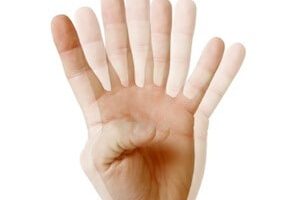What are the similarities and differences between Narcissists and Sociopaths? Both have what is known as Cluster B personality disorders as defined by the mental health community.
Traits of each personality disorder can be researched using the DSM-5 criteria, noting that the diagnostic manual puts Narcissism in its own unique category for NPD [Narcissistic Personality Disorder] while letting Sociopathy [Sociopath, Sociopaths, sociopathic] land couched under the umbrella term ASPD [Anti-Social Personality Disorder].
What’s important to realize is that despite all the bravado or bravada a Narcissist might display on the surface while walking into a bar, that a Sociopath is still the more fearsome personality disorder.
Sociopathy, Psychopathy, and Anti-Social Personality Disorder(s) — as of 2015 — are being actively researched.
The expectation is psychology, psychiatry, and behavioral experts in charge of writing the diagnostic manual will strive in a future edition to provide a more comprehensive breakdown of the ASPD category with respect for the following anti-social, egocentric and unempathetic conditions:
- Sociopath — usually trauma inspired (nurtured), flat emotional affectations, lack empathy, know right from wrong but likely to manufacture chaos for others in an attempt to amuse themselves when feeling bored
- Psychopath — more violent or verbally volatile by nature, more erratic and emotional in general, may have biological thinning of a brain area that limits the healthy and full-scale range of emotions
- Narcopath — meets diagnostic behavioral criteria for having Narcissism plus Sociopathic nature (trauma inspired, deviant personality further hyper-stimulated to readily adapt into harsh, brutal, or narcissistic culture)
- Malignant Narcissist — an extreme form of Narcissist who displays intense personality traits covertly while showing they are fully accountable for moral actions by blame-shifting and reporting false victimization by their targets when called to assume public moral responsibility; one of the most dangerous and toxic personality types
- Dark Triad — Narcissists who display what is known as Machiavellian intent, Narcissism, and any form of Anti-Social tendencies; the most aggressive and dominant form of toxic personality; typically a successful “breeder” (family matriarch or patriarch) who traumatizes and victimized their own friends, family members, children, and co-workers with predictable and caustic regularity
When using narcissism as a term, it’s important to distinguish between the word “narcissism” as a general classification of behavior that represents the word as a noun.
It is also important to note the Narcissism (with a capital N) related to the classification of a personality trait that a) suggests a person or group acts with entitlement and b) that any person who meets diagnostic criteria for having NPD behaves in ways that display conspicuous egocentrism with alarming regularity.
If a person is labeled a Narcissist, that does not mean they are stupid, without merits, or they are incapable of doing good deeds.
Actually, most Narcissistic people (even those who do not have fully developed Cluster B personality disorders like NPD or even ASPD) are well-liked among casual acquaintances. The problem is they predictably simply cannot be TRUSTED.
Likewise, if someone is a Sociopath, while they might end up becoming violent one day during a bout of road rage or during some similarly public or private display of violent, intimidating, or outright aggressively combative behavior, but there is no guarantee they are going to ever even be found out by their peers.
Ted Bundy, a Psychopath by nature, had a greater chance of becoming a serial killer than… say… your average disgruntled and unappreciated corporate executive or situationally abusive school teacher. Charming, fun, and witty, they are unilaterally described by people who were impressed by their charisma, social aptitude manipulating strangers, and their ability to charm — not harm.
Whether running a business scam to recruit new clients to their business, love bombing or hoovering a romantic interest, or conning friends and family members into targeting their preferred scapegoats, targets, and victims of unfair treatment and narcissistic abuse, all report a feeling of kinship and affection for the Narcissist.
This projection of merit reflects cognitive dissonance.
Cognitive dissonance then causes the Narcissist’s truest victims (those duped by the artificial glamor and flashy persona) to enable them socially, emotionally, and fiscally to treat their closest friends and family members like crap.
It’s all part of the Narcissistic Cycle of Abuse… common, predictable, and utterly crazy-making for victims and collateral damage subjects.
Sadly, because Flying Monkeys act like enablers, victims can seldom protect themselves from predators (because their duped friends and family members, while trying to remain neutral) actually enable abuse while acting like soldiers from the Abuser’s army lobbing bombs at targets or violating privacy rights of victims by taking information about the targets back to the predators.
Many end up developing C-PTSD — a rare form of PTSD commonly experienced by people who are held hostage or subjected to routine forms of brainwashing, mind control tactics, and tortures.
As such, learning to spot the red flags and warning signs of various types of Cluster B personality disorders is advised for men, women, and children worldwide.
In the high stress social and political climate of the modern age, it’s crucial humans (as a collective whole representing 80% of the population) learn how to help victims recover more quickly, easily, and completely and well as protecting themselves from being targeted either in the present or at a future time.
If you see a Narcissist or a Sociopath walking into a bar, you are hanging out at the wrong club. Stop duck hunting, excuse yourself politely, and run — don’t walk — to the nearest exit.
Narcissists and Sociopaths cannot control their impulse to lie, manufacture chaos, engage in crazy-making behaviors, and socially destroy clueless targets by betraying confidences, engaging in serial cheating, and/or spreading false rumors about them behind their back compulsively all the time.
They are undependable, untrustworthy, and are the kind of creature who knows the difference between wrong and right.
Unlike a dog (that will look down and act repentant or ashamed when they have done something wrong and been caught), narcissistic predators like Narcissists, Sociopaths, and Flying Monkeys with narcissistic or sadistic streaks are more like a snake.
When they do harm, they are more likely to rage when caught.
Displaying zero remorse, snakes who are proud of doing harm will gaslight, blameshift, covertly brag then smugly publicly deny, deny, deny.
Be ready for it when it happens and learn how to socially disengage while realizing everything the Cluster B person says or does it likely to be attention-seeking or control-oriented in nature, meant only to use, abuse hospitality, or to denigrate while the social predator ‘civil order’ defies.





